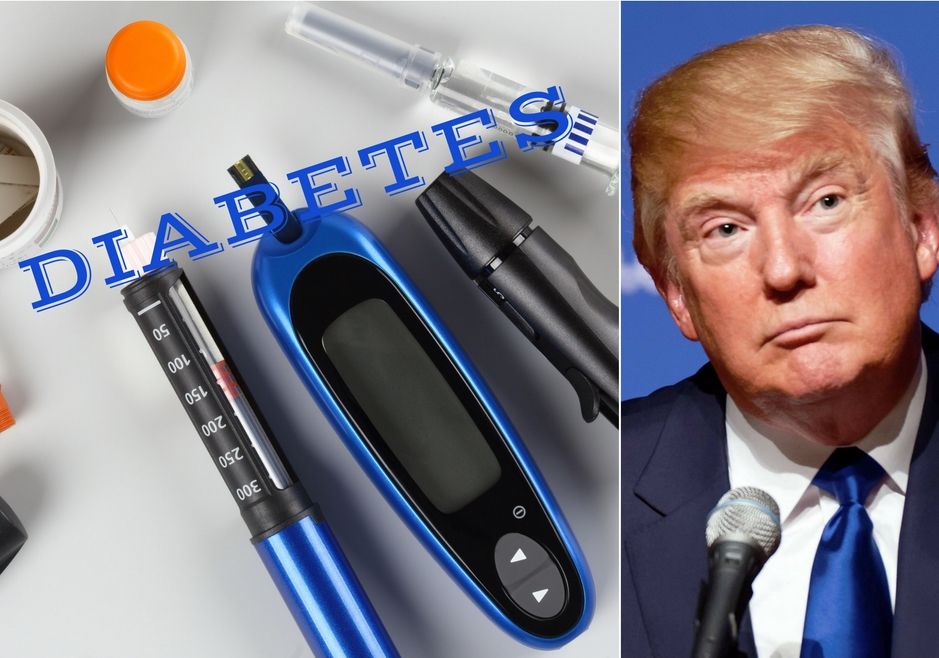Trump’s Plan To Replace Obamacare But Still Keep Those With Pre-existing Conditions Including Diabetes Covered
Following the election on November 8, many in the diabetes community are concerned and questioning their future healthcare coverage as President Elect Trump will enter the White House. The Affordable Care Act–Obamacare is presumed to be repealed and replaced as part of his 100 day plan.
The Affordable Care Act was implemented for many with pre-existing conditions as it provides insurance to over 20 million people; includhttps://en.wikipedia.org/wiki/Patient_Protection_and_Affordable_Care_Acting those with Type 1 Diabetes. It was intentioned to increase health insurance quality and affordability, lower the uninsured rate by expanding insurance coverage and reduce the costs of healthcare.
But as of late there has been an outcry over insurance premium costs rising. Costs have been steadily increasing over the past few years and will be expected to be even higher in 2017. Many health insurance plans such as UnitedHealth opted out of Obamacare due to hundered of millions of dollars in losses. Leaving those insured by Obamacare left with not as many options.
With the higher premiums and deductibles, many patients aren’t able to afford or recieve many benefits. Copayments are high and drug formularies are restrictive. Patients are often restricted to lower quality blood glucose meters and still have to come out of pocket up to (50% or more) after the deducticle for durable medical equipment (DME) to manage Type 1 Diabetes; including insulin pumps, CGMs, and other diabetes medical equipement.
What what to expect next? That’s the question we are all wondering.
Will the diabetes community still be given access to healthcare despite pre-existing conditions?
The process to repeal this federal statute will need a supermajority by the Senate composed of 60 votes to overcome a filibuster. But Senate rules also allow bills to pass with a simple majority if they only relate to spending, a process known as reconciliation. Reconciliation bills need to be approved by a parliamentarian, who certifies that the content does indeed have budgetary impact.
But in order to repeal there must be a replacement plan. While it’s in question whether or not this would cause millions with pre-existing conditions to lose health insurance altogether.
Trump has stated that he plans to take care of everyone, and to a higher degree that we are taken care of now. He states he will “not allow people to die on the sidewalks and the streets of our country” for lack of access to health insurance.
Here is the current position paper on health care reform as stated on Trump’s website:
Congress must act. Our elected representatives in the House and Senate must:
1. Completely repeal Obamacare. Our elected representatives must eliminate the individual mandate. No person should be required to buy insurance unless he or she wants to.
2. Modify existing law that inhibits the sale of health insurance across state lines. As long as the plan purchased complies with state requirements, any vendor ought to be able to offer insurance in any state. By allowing full competition in this market, insurance costs will go down and consumer satisfaction will go up.
3. Allow individuals to fully deduct health insurance premium payments from their tax returns under the current tax system. Businesses are allowed to take these deductions so why wouldn’t Congress allow individuals the same exemptions? As we allow the free market to provide insurance coverage opportunities to companies and individuals, we must also make sure that no one slips through the cracks simply because they cannot afford insurance. We must review basic options for Medicaid and work with states to ensure that those who want healthcare coverage can have it.
4. Allow individuals to use Health Savings Accounts (HSAs). Contributions into HSAs should be tax-free and should be allowed to accumulate. These accounts would become part of the estate of the individual and could be passed on to heirs without fear of any death penalty. These plans should be particularly attractive to young people who are healthy and can afford high-deductible insurance plans. These funds can be used by any member of a family without penalty. The flexibility and security provided by HSAs will be of great benefit to all who participate.
5. Require price transparency from all healthcare providers, especially doctors and healthcare organizations like clinics and hospitals. Individuals should be able to shop to find the best prices for procedures, exams or any other medical-related procedure.
6. Block-grant Medicaid to the states. Nearly every state already offers benefits beyond what is required in the current Medicaid structure. The state governments know their people best and can manage the administration of Medicaid far better without federal overhead. States will have the incentives to seek out and eliminate fraud, waste and abuse to preserve our precious resources.
7. Remove barriers to entry into free markets for drug providers that offer safe, reliable and cheaper products. Congress will need the courage to step away from the special interests and do what is right for America. Though the pharmaceutical industry is in the private sector, drug companies provide a public service. Allowing consumers access to imported, safe and dependable drugs from overseas will bring more options to consumers.

